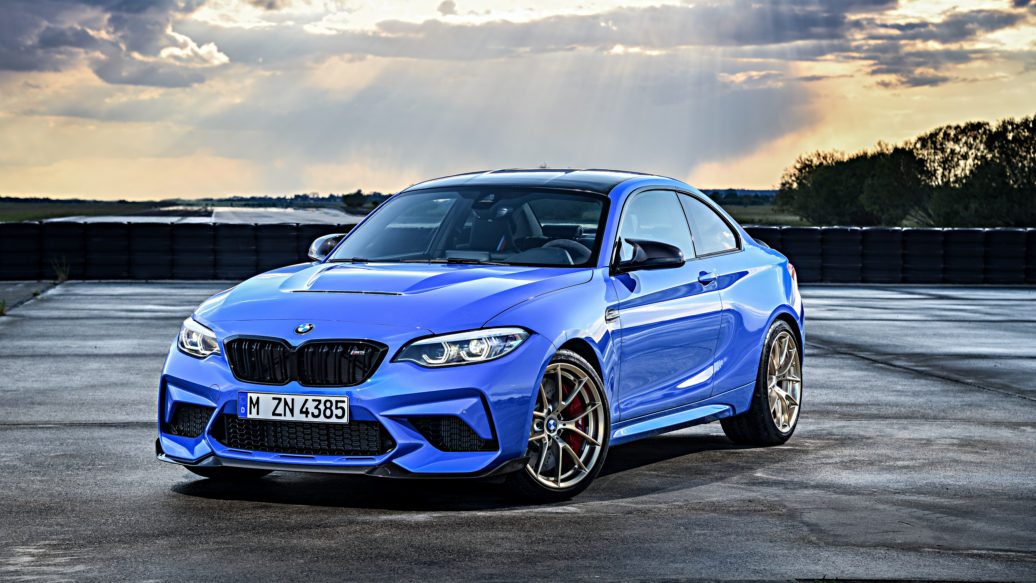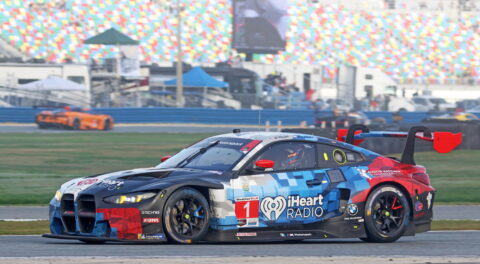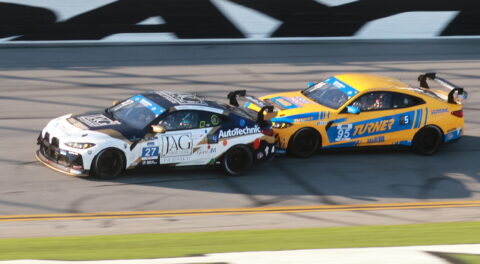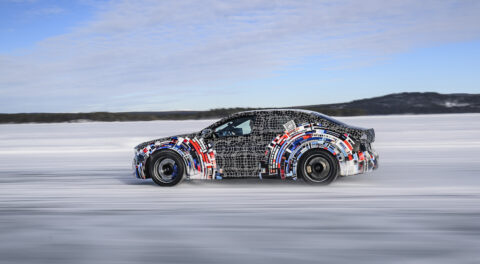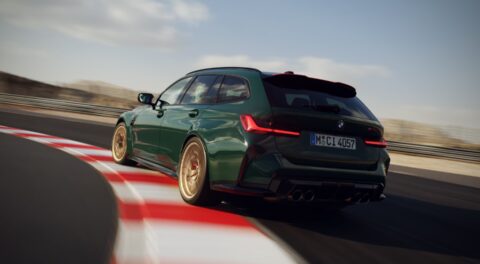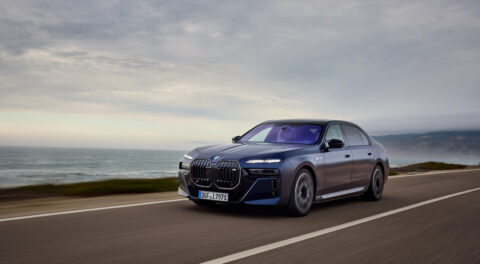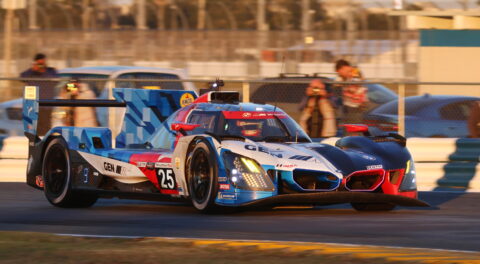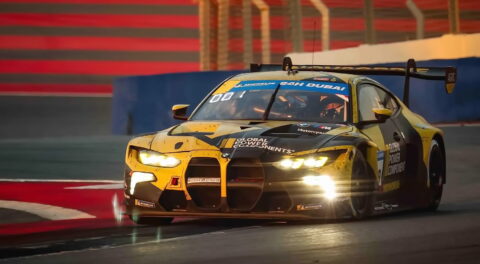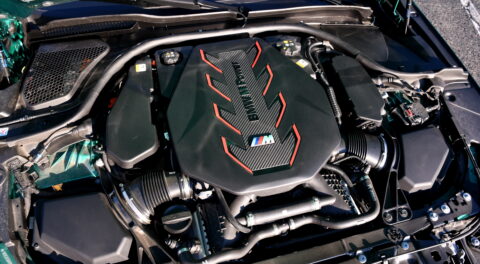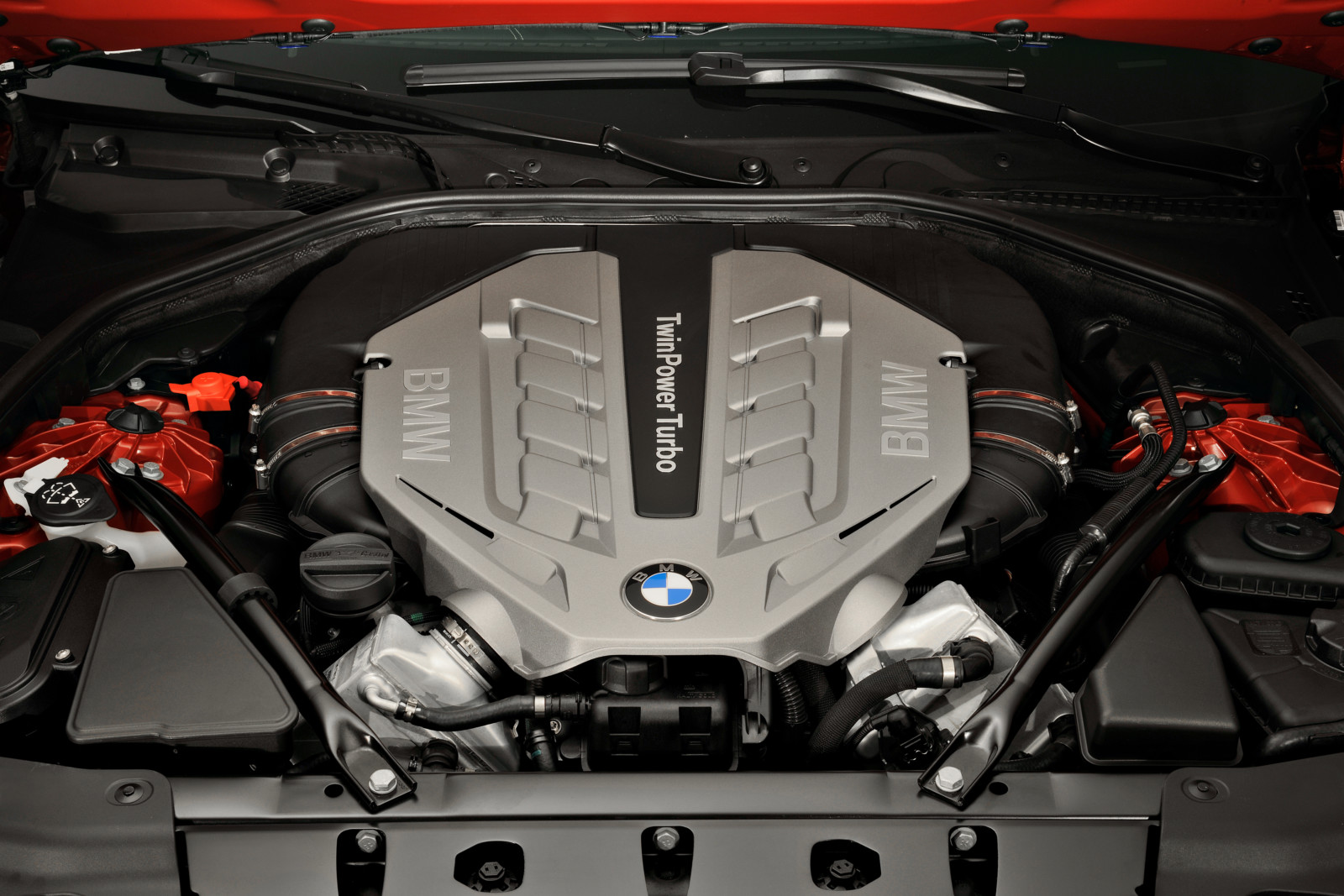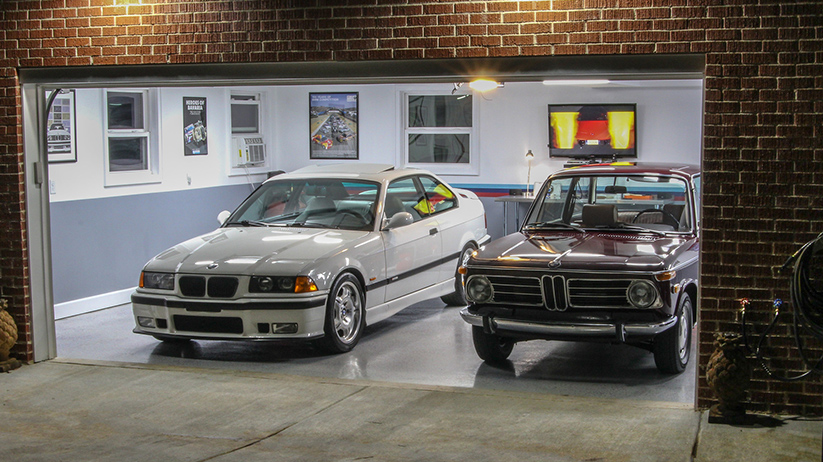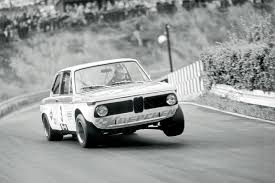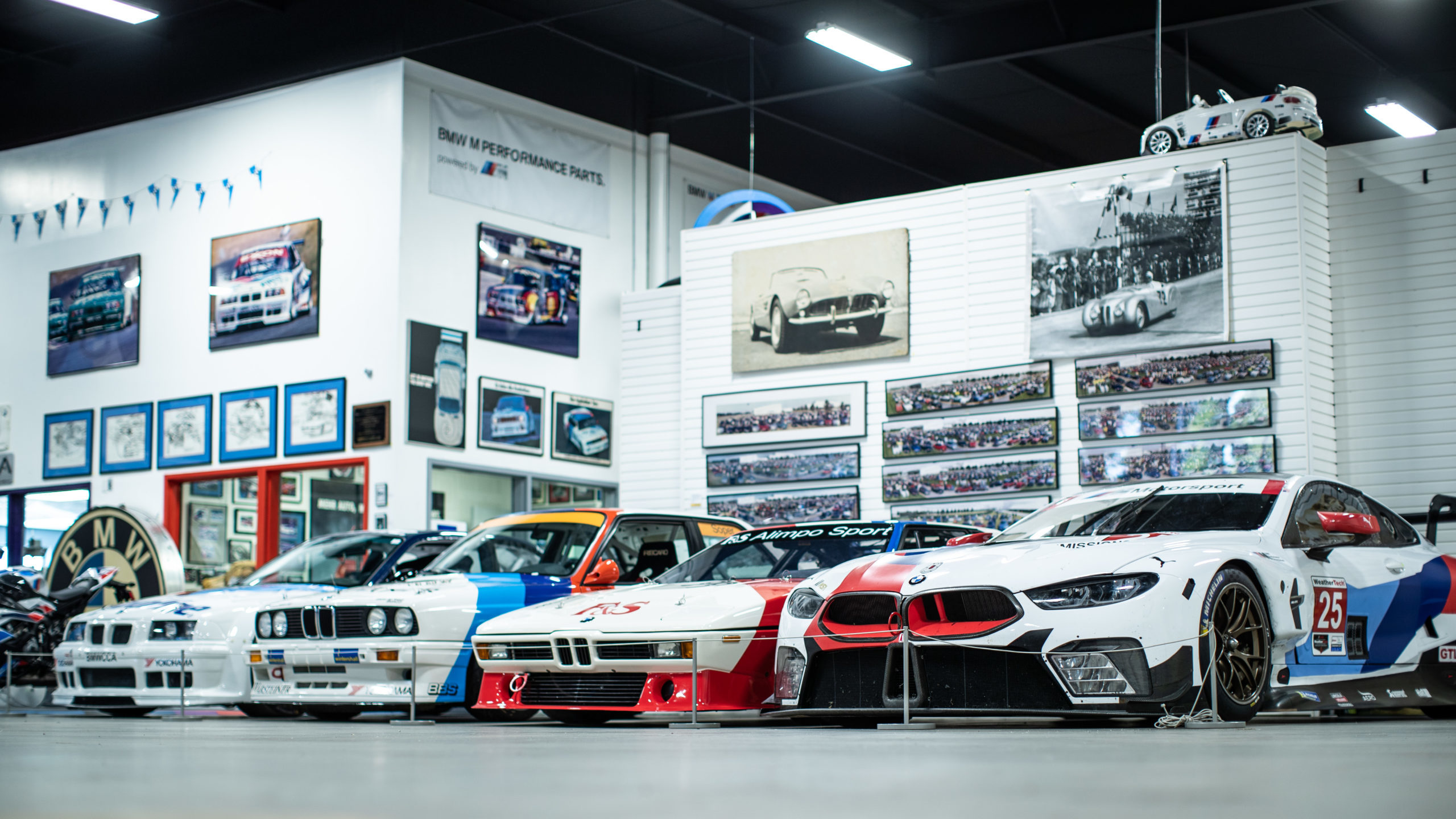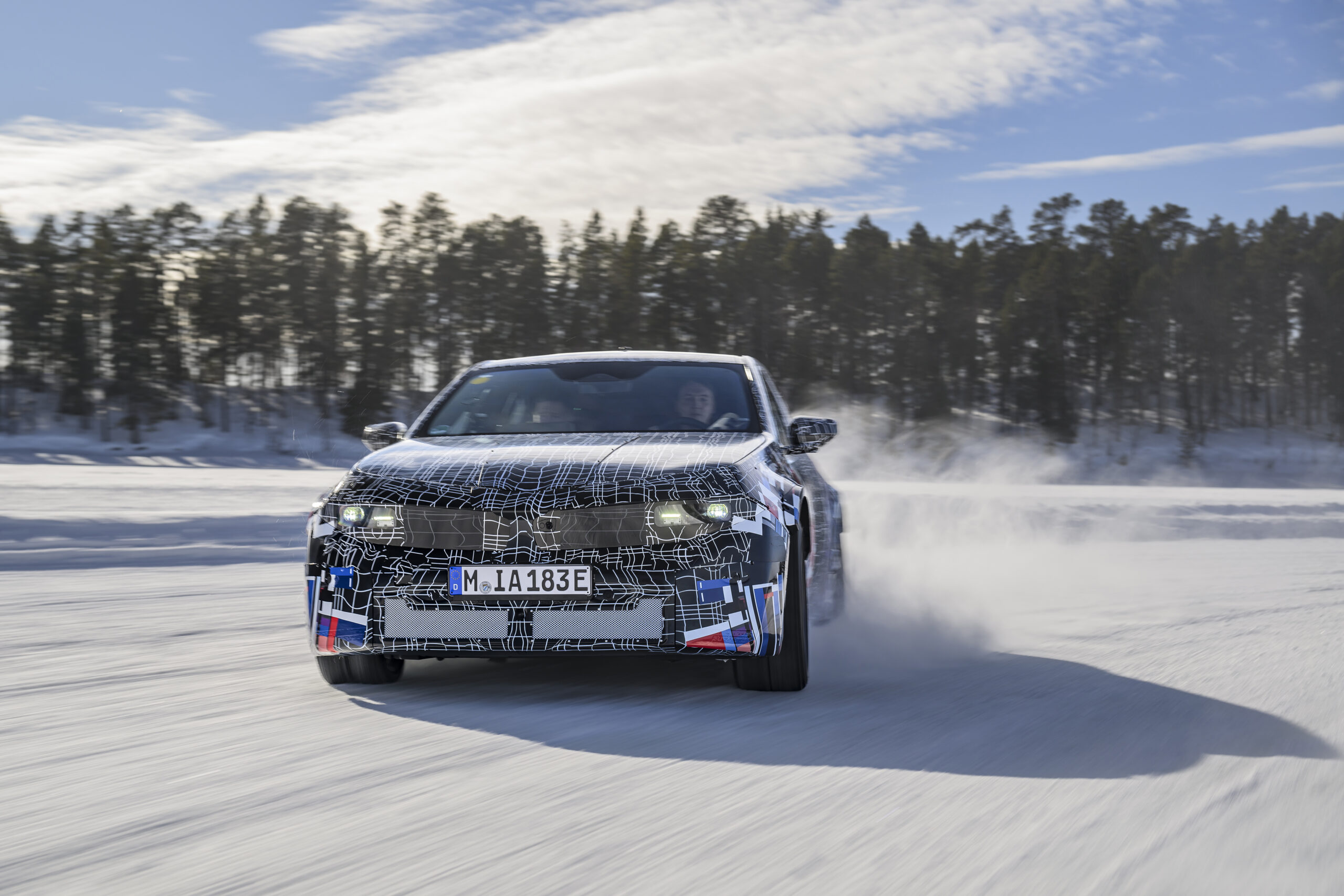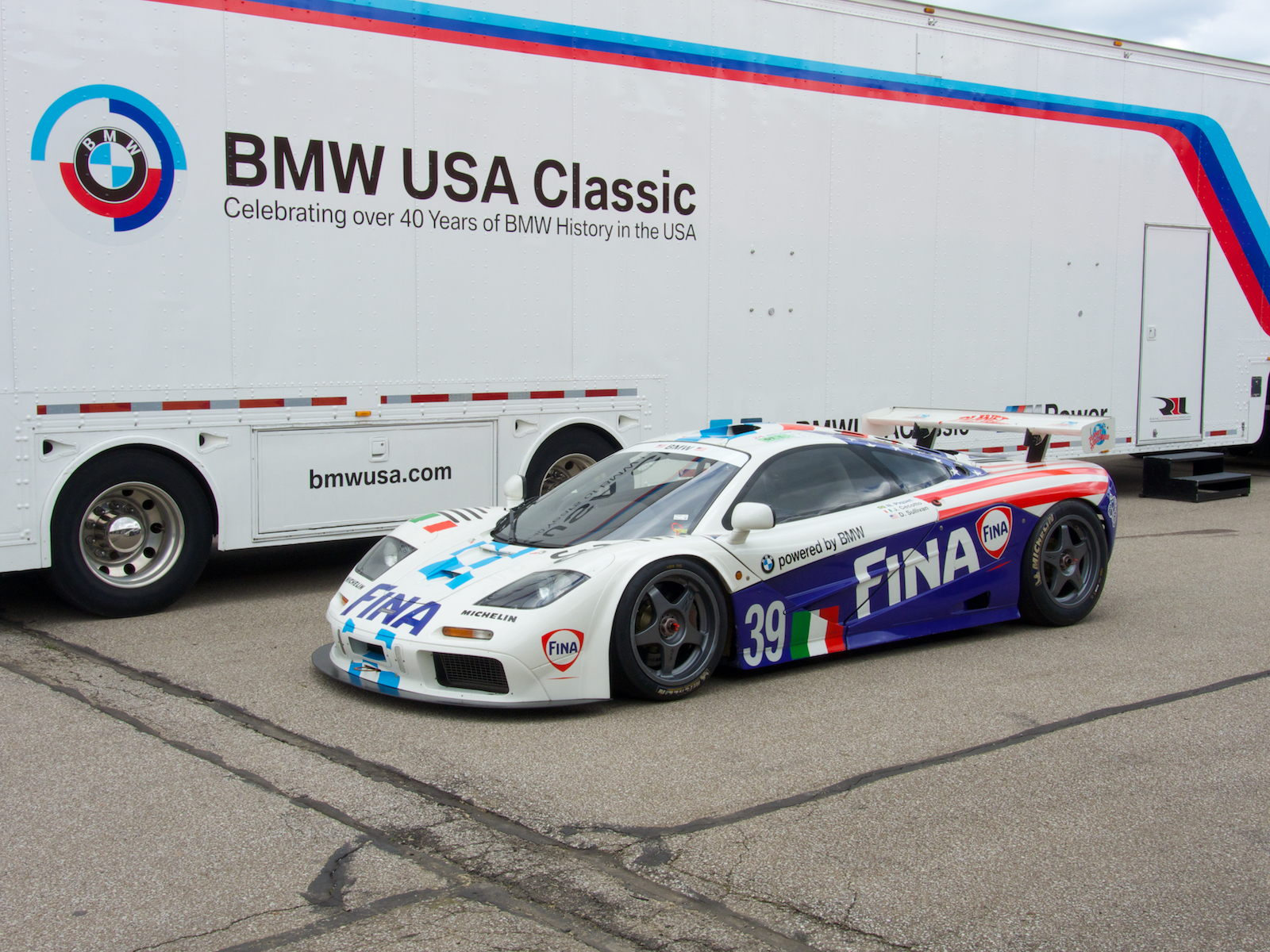We’ve been waiting for this one for a while now. It only made sense for M to come up with one final, ultimate version of the F87 M2, and here it is. In development for well over a year before news broke ahead of the press embargo Monday evening, the M2 CS seems like it may have the specific formula driving enthusiasts look for in a performance car. Benefitting from the 444-horsepower S55 engine also used for the M3 and M4 competition package, BMW’s latest competition sport model can also be ordered with a six-speed manual transmission, something you can’t get with the M3 or M4 CS.
For at least a few, the M3 and M4 CS models didn’t make much sense. They came with expensive lightweight components intended to shave fractions of a second from lap times, but were only available with M DCT. Although the seven-speed dual clutch transmission weighs more, it still allows for faster acceleration than the traditional manual, and for models intended to be razor sharp like the M3 CS, this meant BMW went with the automatic. This is nothing new relating to BMW’s most potent cars, like the M4 GTS or some of the special versions of the E9X M3 range, and it actually dates back to the E46 M3 CSL, which was available exclusively with SMG.
The only problem is that a vast majority of the people who actually buy these limited-production performance specials don’t actually use them in their intended performance setting. In many cases, cars like the M4 CS are more about the sum of their parts than what those parts actually net in terms of performance. For this reason, it makes a lot of sense to offer the M2 CS, which uses a slightly less powerful engine than the other CS models, with a manual as the base transmission. If you’re concerned about performance, M DCT is optional, but don’t forget that the M2 Competition was actually measured as being faster with a stick.
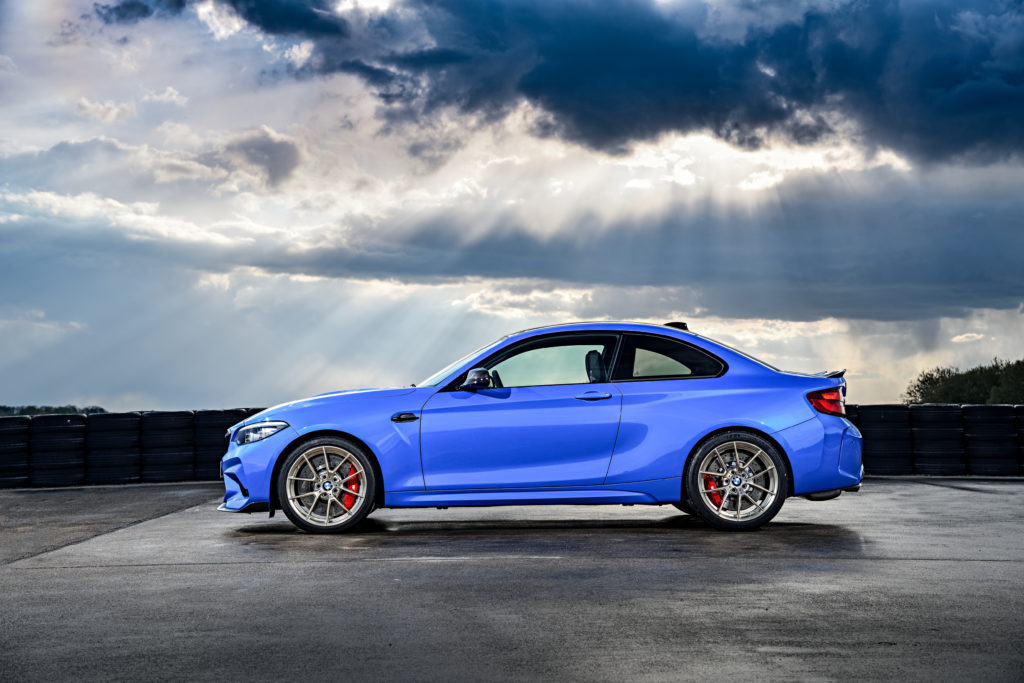
The M2 CS employs the same formula of weight savings as the previous CS models. Carbon-fiber reinforced plastic is used for the hood, roof, and aero pieces, and the wheels are an awesome forged set of 763M Y-spoke BBS which can be ordered in a sharp looking matte gold finish like what’s on display in the photos. The wheels weigh just twenty and 22 pounds a piece, front and rear respectively, according to BMWBlog, and come wrapped in sticky Michelin Pilot Sport Cup 2 tires.
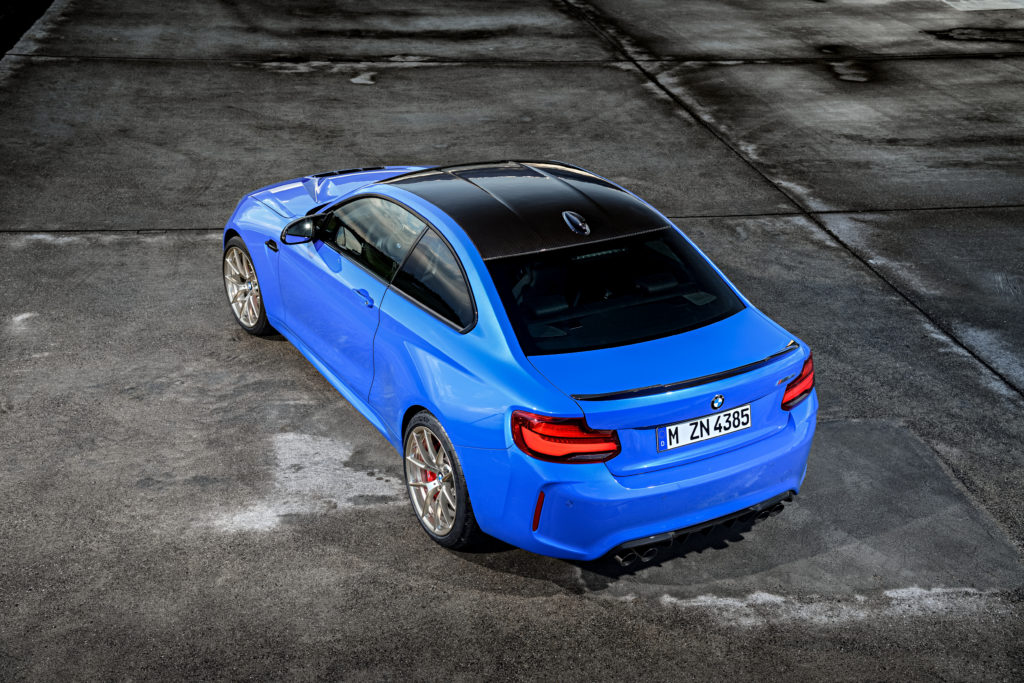
The carbon-fiber roof is among the most notable changes. Although the M2 Competition could be specced with a CFRP roof through the BMW M Performance part range, it is standard here. The rest of the aero bits seem to match what was fitted on the test mule that was spotted over a year ago, although the hood now has the same trio of rear-facing vents in it as the M3 and M4 CS. Stopping power has been upgraded as well, with the M2 Competition’s M Performance brakes (which employ distinctive red calipers) now used as the standard offering. If you need a bit more than that, the M2 CS can be ordered with M carbon-ceramic brakes, which are the ultimate tier.
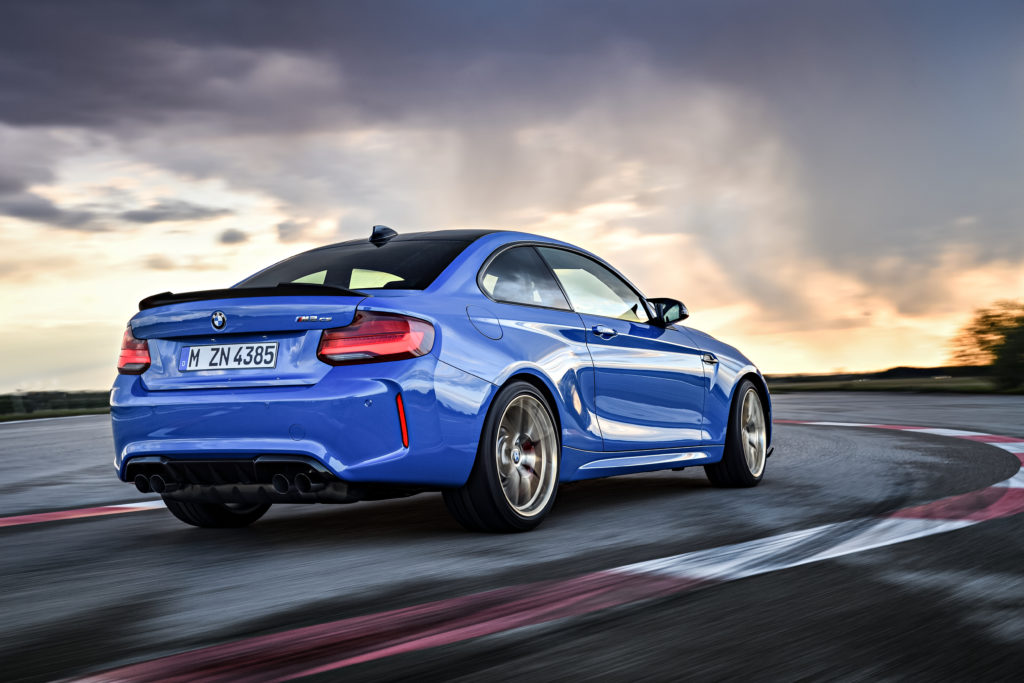
The cabin is nicely differentiated from the M2 Competition, but doesn’t go overboard like the M3 and M4 CS which used some GTS parts like lightweight recycled composite door panels that lacked solid arm rests and cloth door pull straps instead of actual handles. The interior remains purpose-oriented though, with a chunky steering wheel and carbon-fiber door pulls in view. Both leather and Alcantara are used, with the latter covering the center console which is made of carbon-fiber to save about six pounds. The CS logo appears on the instrument panel and on the headrests of the front seats, Harman Kardon premium sound is standard, and so is a universal garage door opener—nice.
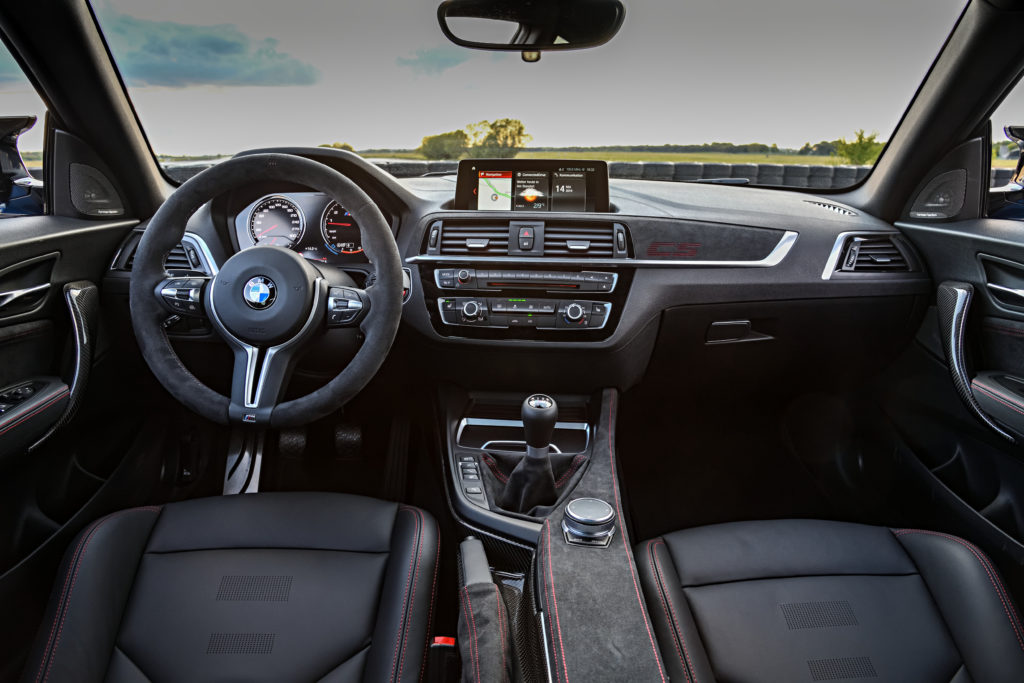
The M2 CS comes with the S55B30 twin-turbo inline six of the M3 and M4 competition package. This means that it makes 444 horsepower at 6,250 rpm with 406 pound-feet of torque available from 2,350 to 5,500. BMW’s official zero-to-60 acceleration times are 3.8-seconds for cars with M DCT, and four seconds for six-speed cars. A top speed of 174 mph is listed for both, but unfortunately BMW has not yet released curb weight measurements, so we don’t know much actual weight savings the expense of the CS actually gets you. Along with the previously mentioned hardware upgrades, adaptive M suspension is standard, along with the active M differential, and model specific bushings and balljoints.
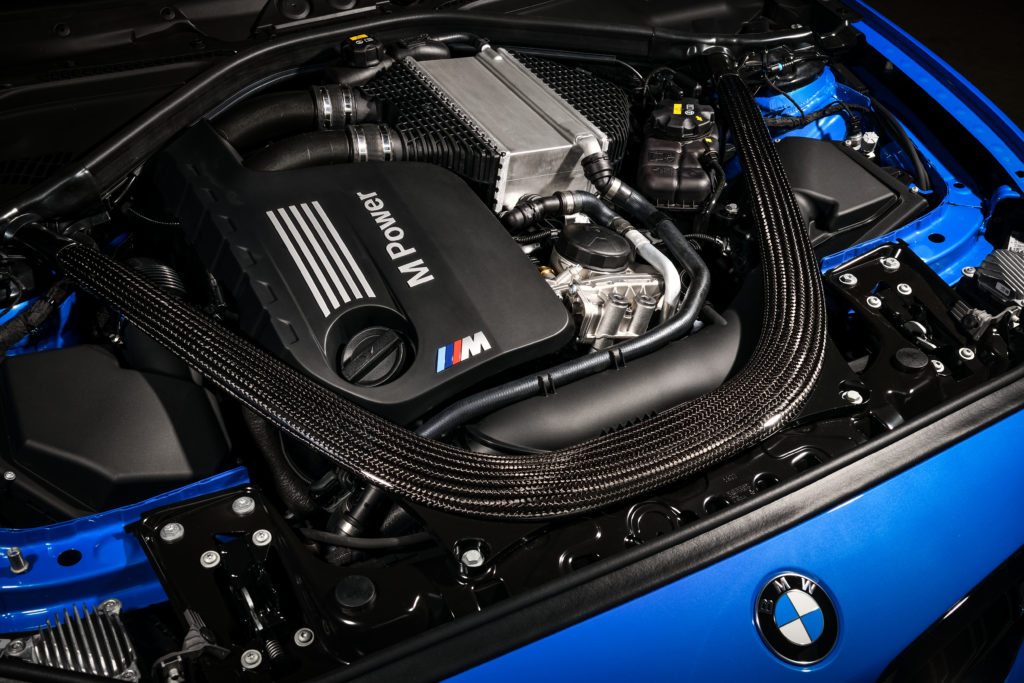
Both color options and production will be limited; the exact number coming to the U.S. isn’t yet known, but it is being speculated that roughly 2,200 will be made in total, with around 500 sent to the U.S. market. If you want one, you’ll have to choose between Alpine White, Black Sapphire metallic, Hockenheim Silver, or Misano Blue, the latter of which has superseded Long Beach Blue in the color lineup. Production is scheduled to commence in March of next year, and pricing is not yet known.—Alex Tock
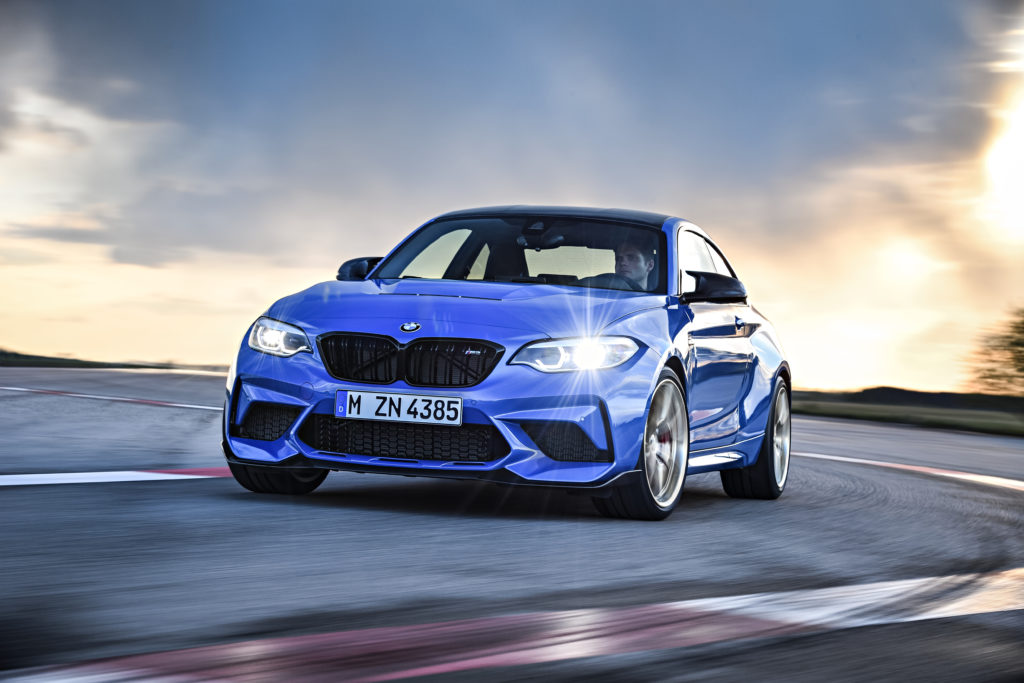
[Photos courtesy BMW AG.]

